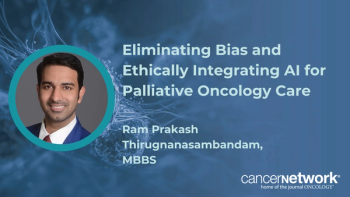
Moving Novel Brain Cancer Treatment Classes Down the Development Pipeline

Shwetal Mehta, PhD, describes efforts regarding the development of protein degraders and antibody-drug conjugates in the neuro-oncology field.
CancerNetwork® spoke with Shwetal Mehta, PhD, about her institution’s early phase clinical trial program as well as her excitement in moving new drug classes into later phases of research for patients with brain cancer.
Mehta, the deputy director and pre-clinical core leader at the Ivy Brain Tumor Center of Barrow Neurological Institute in Phoenix, Arizona, explained how her group’s early phase program implements a pharmacokinetic- and pharmacodynamic-driven strategy to optimize the amount of time and resources dedicated to studying therapeutic agents of interest. Additionally, she outlined her institution’s aim to adapt treatment modalities such as proteolysis targeting chimeras (PROTACs) and antibody-drug conjugates—which have demonstrated efficacy in other tumor types—to the neuro-oncology field.
Transcript:
When we started at the Ivy Brain Tumor Center 7 years ago, we [had] the largest early phase clinical trials program. Our goal was to move drugs through this pipeline using pharmacokinetics- and pharmacodynamics-based approaches to identify drugs that have activity in the brain, move those good drugs forward, and then also weed out the ones that are not good; [the ones] where we are not seeing any activity. [We do this so] that we in the community don’t spend too much time, patience, and resources on these drugs.
We’ve done that. Now, over the last year, we’ve seen that we were capable of not just doing these early phase clinical trials [but entering] this phase of moving drugs into phase 3 [studies]. That’s exciting. For us, right now, we are excited about these new classes of agents that are within the space, like the PROTACs, the protein degraders, ADCs [antibody-drug conjugates], which have shown amazing promise in the rest of the oncology space. Neuro-oncology is only now trying to test these things out, and we are so uniquely situated to ask some of the important questions for these types of molecules. That’s where our focus is going to be in the coming years, and we’re very excited about that.
Newsletter
Stay up to date on recent advances in the multidisciplinary approach to cancer.











































